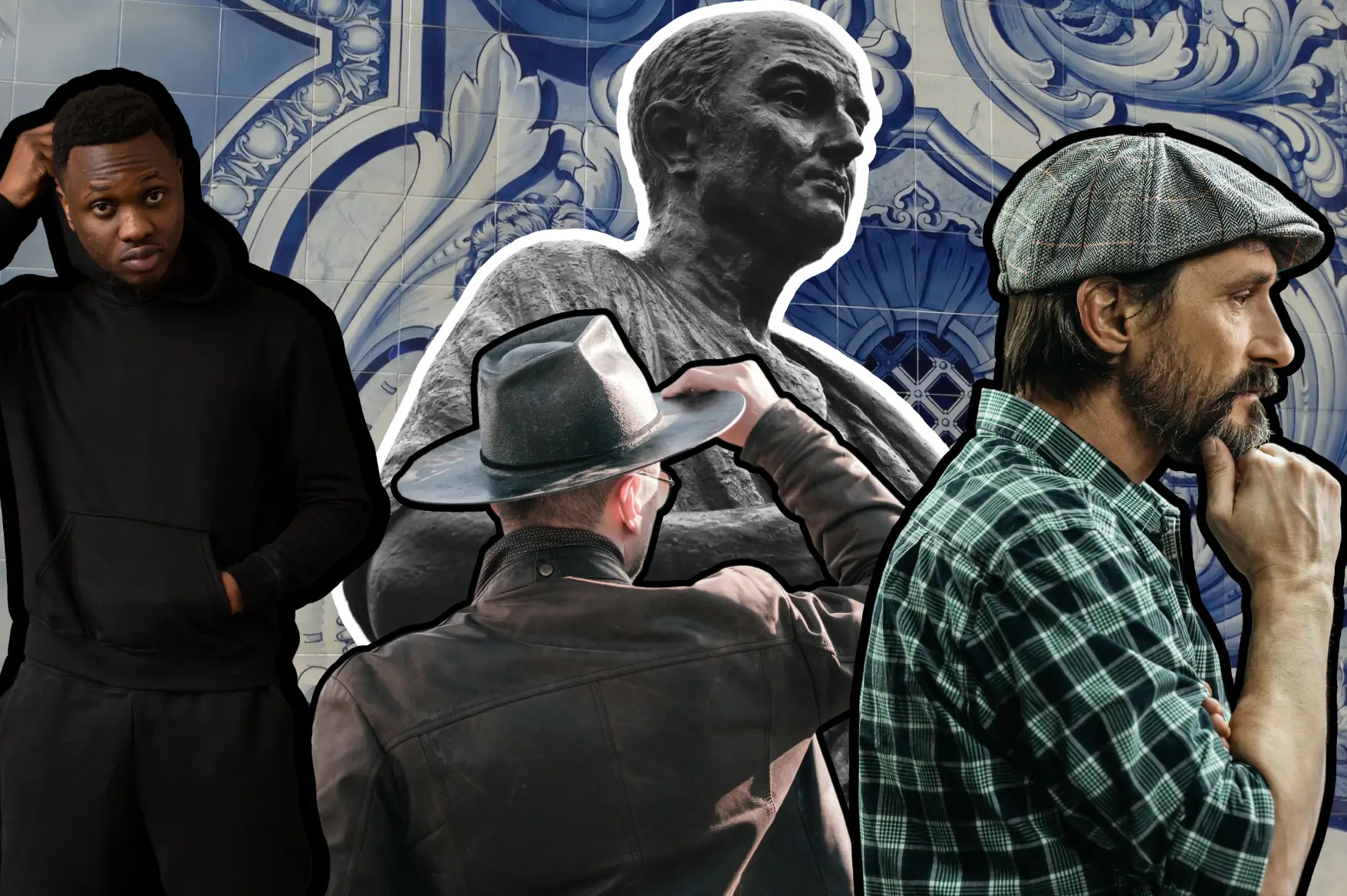Stoicism, the resilient philosophy born in the bustling heart of Hellenistic Greece, is today finding fresh ears and open minds in our frenetic world. The modern man, overstimulated, untethered, and often overwhelmed, is turning back the philosophical clock to find solace in the Stoics' wisdom, a practical recipe for personal serenity amidst the chaos.
As Seneca, the renowned stoic sage, wrote, "We suffer more often in imagination than in reality."
This philosophy, ancient yet strikingly contemporary, encourages us to focus on what's within our control — our own actions and attitudes — and to treat everything else with equanimity. "You have power over your mind — not outside events. Realize this, and you will find strength," wrote Marcus Aurelius, the Stoic emperor.
Epictetus, the slave turned philosopher, taught that it is not the events themselves that disturb people, but their judgments about the events. A Stoic cultivates an inner fortress, able to weather the stormiest seas of life, undisturbed by the volatility of external events.
Stoicism’s Modern Resurgence
Today's modern Stoics are channeling these ancient teachings into practical tools for a frantic, uncertain world. Take Tim Ferriss, the influential author and entrepreneur. Ferriss, who speaks openly about his personal struggles with depression and anxiety, promotes stoic principles in his writings and his popular podcast. He translates ancient wisdom into strategies that are accessible to the modern man, framing stoicism not as an esoteric doctrine, but as a mental toolkit for navigating life's inevitable ups and downs.
Ryan Holiday, another voice resounding in the Stoic revival, has written several bestselling books on the subject, including "The Obstacle is the Way" and "Ego is the Enemy." With a sharp, contemporary style, he brings Stoicism to life for today's audience, distilling its teachings into tangible lessons that resonate in boardrooms, sports arenas, and living rooms alike.

"In life, it doesn't matter what happens to you or where you came from. It matters what you do with what happens and what you've been given," writes Holiday, echoing the Stoics' focus on action and personal responsibility.
Indeed, these modern interpreters of Stoicism, like Ferriss and Holiday, are part of a growing chorus, suggesting a Stoic revival in an era fraught with uncertainty and change. In the face of such challenges, the time-tested wisdom of Stoicism offers a guiding star, a philosophical beacon of light for the modern man navigating the tumultuous waters of contemporary life.
Recommended Reading: The Stoic Challenge
"The Stoic Challenge: A Philosopher's Guide to Becoming Tougher, Calmer, and More Resilient" is an insightful and practical guidebook, penned by the celebrated philosopher William B. Irvine. The book is a journey into the core teachings of Stoicism and how they can be applied to modern life. Irvine emphasizes the transformative power of Stoic wisdom, presenting it as a practical philosophy of resilience and serenity in the face of adversity.
Drawing on the ancient teachings of Epictetus, Seneca, and Marcus Aurelius, Irvine provides tangible strategies for responding to life's inevitable challenges. With an engaging blend of personal anecdotes and historical examples, he invites readers to see obstacles not as misfortunes, but as "Stoic tests" designed to strengthen their character and perseverance.
In the words of Irvine himself: "When something bad happens, instead of seeing it as a misfortune, you should see it as a Stoic test. Instead of sitting down and moaning, you should stand tall and say, ‘Okay, now let’s see what I’m made of.'"
Through "The Stoic Challenge," Irvine offers a robust, accessible entry into the world of Stoicism, compellingly demonstrating its relevance and utility for the modern reader. By embracing the stoic mindset, he posits, we can cultivate a more robust, resilient self, fully equipped to meet the challenges of contemporary life.
10 Key Facets to Stoicism

With an emphasis on personal responsibility, emotional resilience, and a balanced perspective, Stoicism equips us with the tools to lead purposeful and fulfilled lives, regardless of external circumstances.
Here are ten central elements of Stoic thinking, time-tested tenets that every man should know and imbibe to carve his own stoic path amidst the world's relentless whirl.
- Dichotomy of Control: Stoics believe that some things are within our control — namely, our own actions, beliefs, and reactions — while others are not. By focusing only on the things we can control, we can maintain our equilibrium regardless of external circumstances.
- Endurance in Adversity: Stoics view hardship not as a misfortune, but as an opportunity for growth. As Marcus Aurelius wrote, "The impediment to action advances action. What stands in the way becomes the way."
- The View from Above: This Stoic technique involves visualizing our lives from a broader perspective, often from a third-person viewpoint, helping us to realize the insignificance of our problems in the grand scheme of things.
- Premeditatio Malorum (Pre-Meditation of Evils): This Stoic practice involves visualizing potential negative events before they happen. This prepares us for adversity and can lessen the impact when it does occur.
- Virtue as the Highest Good: Stoicism posits that moral virtue — qualities like wisdom, courage, justice, and temperance — is the only real good. Wealth, status, and comfort are indifferent; they are neither good nor bad in themselves.
- Living According to Nature: The Stoics advised living in harmony with Nature, which they equated with reason and virtue. They believed that by understanding the natural order of the world, we can lead more fulfilling lives.
- Detachment: Stoics value emotional detachment from external circumstances. This doesn't mean suppressing emotions, but rather learning not to be controlled by them.
- Mindfulness: Stoicism promotes an awareness of the present moment. As Marcus Aurelius wrote, "Never let the future disturb you. You will meet it, if you have to, with the same weapons of reason which today arm you against the present."
- Memento Mori (Remember that You Must Die): Stoics routinely contemplate their mortality to fully appreciate life and to imbue their actions with a sense of urgency. This is a powerful antidote to procrastination and complacency.
Modern Stoicism: A Way Through The Mists

In the ceaseless whirl of modern life, where change is the only constant and uncertainty our steady companion, Stoicism emerges as a beacon of light — an oasis of calm in a tempestuous world. As we've journeyed together through the vast landscape of this ancient philosophy, we've seen how its tenets remain strikingly relevant, even millennia after their inception.
From the wisdom of Epictetus, Seneca, and Marcus Aurelius to the contemporary interpretations of Tim Ferriss, Ryan Holiday, and William B. Irvine, Stoicism has proven itself to be more than just a philosophy; it's a roadmap for resilience, a guidebook for grace under pressure, a strategy for serenity amidst the storm.
The Stoics remind us that we have the power to shape our response to life's challenges, to focus our energy where it truly matters. They teach us to treat adversity not as a misfortune, but as an opportunity for growth. As your grapple with your own 'Stoic tests,' remember these lessons. They are not only tools for personal development but also a clarion call to alchemize our trials into triumphs.
As we navigate the complexities of our contemporary existence, may we carry the wisdom of the Stoics with us — not as mere words etched in old texts, but as living principles guiding our path. After all, in the enduring words of Marcus Aurelius, "Waste no more time arguing about what a good man should be. Be one."
With the principles of Stoicism by our side, let us rise to the challenge and make our own dent in the universe. And remember, in the grand narrative of life, we are but actors playing our part. Let's ensure that our performance, however brief, rings with authenticity, courage, and wisdom, for that is the true Stoic way.


